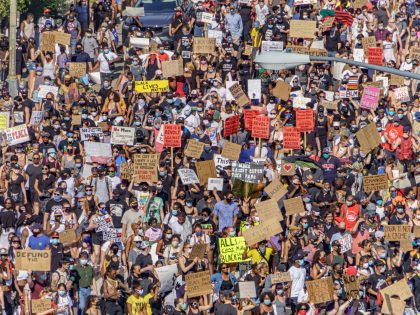
#FeesMustFall in Nigeria
Student organizing is resurging in Nigeria. But to have any impact, students must connect with struggles beyond campus.

Student organizing is resurging in Nigeria. But to have any impact, students must connect with struggles beyond campus.

The last decade saw the most protests in human history. But how is it that so many uprisings led to the opposite of what they asked for?

Recent violence across the Eritrean diaspora is being instrumentalized by populists. But the violence is a desperate cry for attention and requires the Eritrean opposition to seize the moment for regime change.

On our annual publishing break, we’ll be pondering what the responsibility of the African intellectual is today.

In Kenya, political elites across the spectrum are trying to sell off the country for themselves—capitulation is inevitable.

Although Senegal’s protests are riven with contradictions, they testify to its people’s willingness to defend their democratic rights and freedoms.

Political prisoner Alaa Abd El-Fattah’s collection of writings are a powerful and evocative reminder that democracy in Egypt remains a bleak prospect.

Revisionist histories of South Africa’s transition to democracy are overdue, like on the deadly march on Bisho in the Ciskei homeland on 7 September 1992.

We know an enormous amount about what precipitated the 2012 Marikana massacre, but relatively little about what is behind the violence there since.

Beyond the social media firestorm over journalist Trish Lorenz’s book about #EndSARS, it is worth engaging in the debate about wider representation in movement building and protest.

Politics is about effectiveness, and casting youth as a political subject (rather than simply a demographic), is a bad way to do politics.

A decision to rescind an invitation to Israeli academics to a conference in South Africa, revived a tactic of the anti-apartheid struggle. Is it effective?

After defying the state apparatus in March 2021, Senegalese voters sent a strong message of disobedience and sanction via their ballots in January 2022 and signaling their readiness for another regime change in 2024.

The death of two protesters last month in Niger, could bring pressure for a meaningful Truth and Reconciliation for French colonialism in Africa.

Poet Mongane Wally Serote’s 40-year lament, still haunts Black South Africans: “it is only in our memory that this is our land.” The land haunts our memory, and, in turn, we haunt the land’s memory.

One of the evolving themes about Algeria's Hirak movement is how it reinvigorated protest among Algeria's diaspora, including in the U.S.

The July riots in South Africa felt similar to those by Peronists in Argentina in December 2001. But Zuma’s people are moving from a much weaker position.

Sound Sultan, who died of cancer in July 2021, battled with the cankerworm of bad leadership and outright violations of rules of law in his homeland, Nigeria, through his songs.

If South Africa’s Left can’t find a way to channel popular discontentment into the building of mass progressive movements, it will instead morph into anarchy, nativism and, inevitably, authoritarianism.

#FeesMustFall was the most serious challenge to the post-apartheid political order, but didn’t connect to broader working-class struggles. Now, despite police brutality, students are beginning to make those linkages.